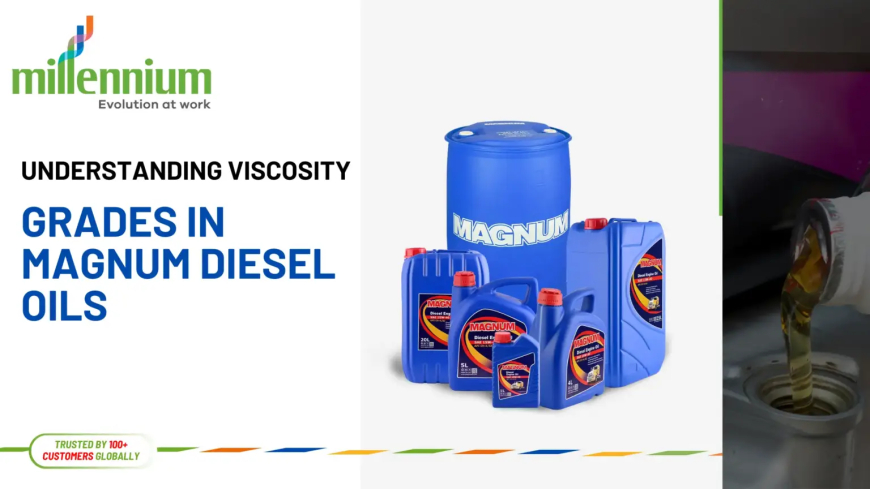Understanding Viscosity Grades In Magnum Diesel Oils

Introduction To Viscosity Grades In Magnum Diesel Oils
Magnum diesel oils are specifically designed to meet the demanding requirements of heavy-duty diesel engines. Understanding viscosity grades in these oils is crucial for ensuring optimal engine performance and longevity. Viscosity grades refer to the oil's resistance to flow at different temperatures, with lower viscosity oils being thinner and flowing more easily than higher viscosity oils. In magnum diesel oils, viscosity grades are typically denoted by a combination of numbers and letters, such as 10W-30 or 15W-40.
These grades indicate the oil's ability to maintain proper lubrication and protection in a wide range of operating conditions. By understanding viscosity grades in magnum diesel oils, users can select the right oil for their specific engine needs and ensure efficient performance under various temperature conditions.
Factors Affecting Viscosity Grades In Magnum Diesel Oils
Understanding viscosity grades in magnum diesel oils is crucial for ensuring optimal engine performance and longevity. Several factors can influence the viscosity grade of diesel oils, including temperature, engine design, and operating conditions. High temperatures can cause oil to thin out, leading to decreased lubrication and potential engine damage. Engine design plays a significant role in determining the required viscosity grade, as different engines have varying tolerances for oil thickness.
Additionally, operating conditions such as heavy loads or frequent stop-and-go driving can increase the demand for higher viscosity oils to maintain proper lubrication. By considering these factors and selecting the appropriate viscosity grade, diesel engine owners can ensure their engines run smoothly and efficiently.
Importance Of Choosing The Right Viscosity Grade For Your Engine
Choosing the right viscosity grade for your engine is crucial in ensuring optimal performance and longevity. The viscosity of an oil determines its ability to flow and lubricate engine components, with lower viscosity grades offering better flow in cold temperatures and higher grades providing more protection at high temperatures. Using the wrong viscosity grade can result in poor lubrication, increased wear on engine parts, and reduced fuel efficiency.
By selecting the correct viscosity grade for your engine, you can ensure that it operates smoothly in all conditions, minimizing friction and heat buildup. Regularly checking and maintaining the proper viscosity grade will help extend the life of your engine and prevent costly repairs down the line.
Tips For Understanding And Selecting The Correct Viscosity Grade For Your Magnum Diesel Oil
When it comes to understanding viscosity grades in Magnum diesel oils, selecting the correct grade is crucial for optimal engine performance and protection. To ensure you choose the right viscosity grade for your Magnum diesel oil, consider factors such as the operating conditions of your vehicle, the manufacturer's recommendations, and the climate in which you will be driving. It is important to remember that viscosity grades are designed to provide adequate lubrication at different temperature ranges, so selecting a grade that matches your specific driving conditions is essential.
By taking into account these factors and consulting with your mechanic or oil supplier, you can make an informed decision on which viscosity grade will best suit your Magnum diesel engine and help prolong its lifespan.












